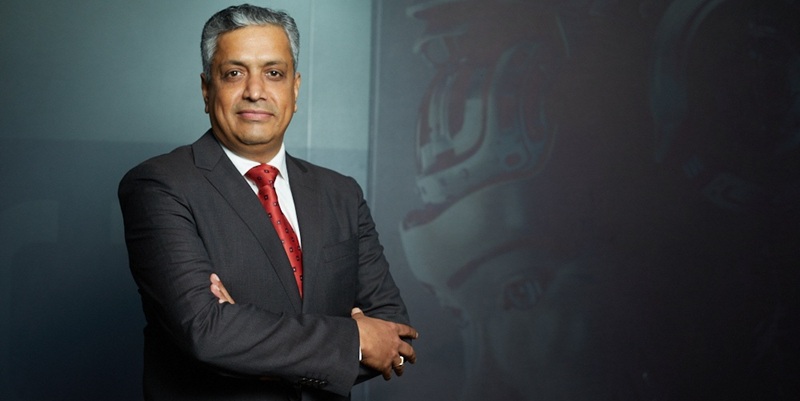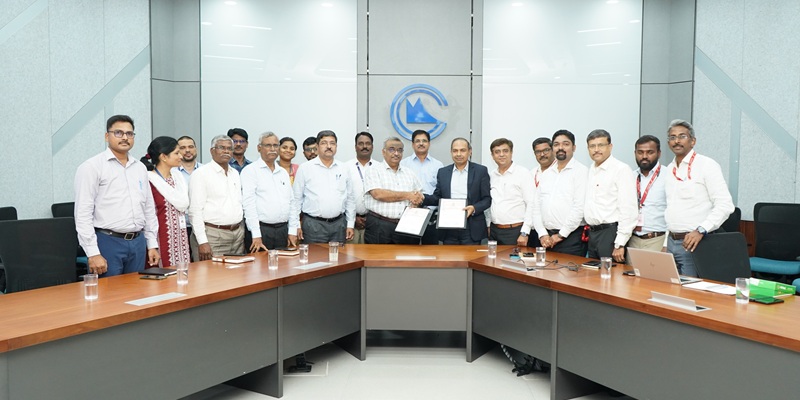Schedule a Call Back
Andhra Pradesh: Industry a Victim of Politics
 Technical Articles
Technical Articles- Jan 28,12
The State of Andhra Pradesh is quickly losing its investor-friendly status due to the unresolved Telangana issue even as the government is fighting hard to woo new investors, reports Huned Contractor
 Politics and business will always make for strange bedfellows. This is becoming more than evident from the situation in Andhra Pradesh where the ongoing Telangana issue is now making new investors wary of parking their funds in what was, not too long ago, regarded as one of India's most business-friendly States. An example is the struggle that the organisers of a marquee event modelled after the biennial Vibrant Gujarat summits had to face to attract investors. While Chief Minister Mr Kiran Kumar Reddy had been clearly sending out messages that Andhra Pradesh continued to remain a destination of choice for businesses, many of the potential investors preferred to shy away from the International Investment Summit (CII Partnership Summit 2012), held from January 11-13, 2012.
Politics and business will always make for strange bedfellows. This is becoming more than evident from the situation in Andhra Pradesh where the ongoing Telangana issue is now making new investors wary of parking their funds in what was, not too long ago, regarded as one of India's most business-friendly States. An example is the struggle that the organisers of a marquee event modelled after the biennial Vibrant Gujarat summits had to face to attract investors. While Chief Minister Mr Kiran Kumar Reddy had been clearly sending out messages that Andhra Pradesh continued to remain a destination of choice for businesses, many of the potential investors preferred to shy away from the International Investment Summit (CII Partnership Summit 2012), held from January 11-13, 2012.
The event was postponed thrice and despite initial reservations a large number of companies participated in the summit. The Andhra Pradesh government signed 243 memoranda of understanding (MoUs) promising a total investment of about Rs 6.48 lakh crore during the three-day event. "We are expecting a conversion rate of about 50%, implying that at least half of the promised investment would actually take shape in due course," Mr BVR Mohan Reddy, former chairman of CII Southern Region and CMD of Infotech Enterprises, said. While there was some scepticism and criticism about the actual figure and proposals, with some of them obviously old ones under consideration, for a State reeling under an agitation for a division along regional lines, the holding of the summit itself was an achievement, and a positive development.
Andhra Pradesh, India's fourth-largest State by area and population, ran into trouble soon after the death of Chief Minister YS Rajasekhara Reddy in 2009. Since then, his son Jagan Mohan Reddy has rebelled from the Congress and diminished its majority while the government has been further weakened by a separatist agitation in the Telangana region. In 2004-05, Andhra Pradesh was India's second most attractive investment destination but it has slipped to fifth place now, according to the Department of Industrial Policy and Promotion. In fact, such has been the slide downwards that the government's attempt to lure investors by offering a slew of fiscal concessions - including captive power generation for all industrial units, 50 per cent exemption on stamp duty, registration fee and transfer duty of lands meant for industrial use - has also not had its effective result.
This is not to say, however, that the State government is not trying its level best to improve the industrial and economic scenario. In a recent development, it has been reported that the cooperation department of the State is considering setting up cooperative societies in new areas such as food retail, insurance, travel, health among others.
The move is a part of the State government's effort to explore the scope of cooperatives in segments like fruits and vegetables, healthcare, travel, tourism, retail and piggery, while ensuring accountability in the operations of MACS (Mutually-Aided Cooperative Societies). Meanwhile, Mr Kasu Venkata Krishna Reddy, Minister for Cooperation, has asked officials to look into the possibility of using warehouses and other storage facilities owned by PACS (Primary Agricultural Cooperative Societies).
 The focus is also on reaching outwards. According to a news report, the small and medium enterprises (SMEs) in the State could bag opportunities to ink joint ventures and also partnerships with firms in the US, mainly from Cleveland, Ohio. A meeting between the Federation of Andhra Pradesh Small Industries' Association (FAPSIA) and Mr Vinod K Gupta, the entrepreneur-in-residence for JumpStart Entrepreneurial Network (JEN) Advisors, was held in the presence of Dr P Shankar Rao, State Minister for Textiles and Small Scale Industry in December 2011.
The focus is also on reaching outwards. According to a news report, the small and medium enterprises (SMEs) in the State could bag opportunities to ink joint ventures and also partnerships with firms in the US, mainly from Cleveland, Ohio. A meeting between the Federation of Andhra Pradesh Small Industries' Association (FAPSIA) and Mr Vinod K Gupta, the entrepreneur-in-residence for JumpStart Entrepreneurial Network (JEN) Advisors, was held in the presence of Dr P Shankar Rao, State Minister for Textiles and Small Scale Industry in December 2011.
The Minister had then stated that these efforts would be helpful in bringing together the small and medium enterprises from the State and Ohio to ink collaborations. Gupta's not-for-profit organisation in Cleveland, which emphasises on coaching the entrepreneurs in drawing up business plans and securing funds, would be playing a significant role in the process. Gupta, Chairman, Commercialisation for the Ohio Task Force in Technology, said that there have been numerous opportunities that could be captured.
As for the State's industrial policy, the Andhra Pradesh government has one in place for the next five years, aiming to attract Rs 15,000 crore investment annually and create 5,00,000 jobs every year. The policy has set a target of 17 per cent growth in manufacturing and increased investment subsidy for micro and small enterprises from Rs 15 lakh to Rs 20 lakh. The State cabinet approved the policy for 2010-2015 in the beginning of 2010, which offers a series of incentives, especially for micro, small and medium enterprises (MSMEs). According to former Chief Minister K Rosaiah, this has been the best industrial policy in the country with potential to transform Andhra Pradesh into a top investment destination.
The policy, which came into effect from July 1, 2010 focuses on MSMEs and food processing units. It is also aimed at facilitating reduction of regional and sub-sectoral imbalances. The government will promote industries along the gas pipeline laid in the State to take advantage of the availability of natural gas. The policy has also changed the definition of a mega project by enhancing the existing limit of Rs 100 crore investments to Rs 250 crore. "However, any project creating employment for more than 2,000 persons is also proposed for consideration of special package of incentives under mega projects," said a government statement. The policy offers 75 paise reimbursement of power cost for each unit. The present electricity tariff for industry is Rs 3.53 per unit, the lowest compared to other industrially developed States.
The government will provide Rs 100 crore every year for the promotion of industrial infrastructure for micro and small enterprises. The other highlights of the new policy include 25 per cent of VAT (value-added tax) reimbursement for large and medium enterprises, 50 per cent VAT reimbursement for small enterprises, 5 per cent additional subsidy to women entrepreneurs, 10 per cent of plots to women entrepreneurs in the new industrial estates, special incentives for entrepreneurs belonging to scheduled castes and scheduled tribes, etc. But even if the private sector is still debating about the viability of investing in Andhra Pradesh, the PSUs have no such problems. Numerous central public sector undertakings, comprising those from the defence sector, want to establish projects in the state. This list of companies consists of Hindustan Aeronautics Ltd with a chopper facility, Bharat Electronics Ltd, Nuclear Power Corporation India Ltd for nuclear reactors and Bharat Dynamics Ltd for missile facilities. Even Bharat Dynamics Ltd has shown interest to establish projects in the state, one at Anantapur, two in Chittoor and another project in the Ranga Reddy districts. The State government has handed over 32 acres to Andhra Pradesh Industrial Infrastructure Corporation (APIIC) for BDL's Rs 500-crore project at Ibrahimpatnam.
Nuclear Power Corporation of India Ltd is considering a proposal to establish two large nuclear reactors at Adoni in Kurnool district and another one at Visakhapatnam. The State government has been making arrangements for giving 1,000 acres for these two projects along with water and power supplies. HAL, meanwhile, may set up a greenfield project for the manufacture, repair and overhaul of helicopters with a financial outlay of Rs 4,000 crore while Bharat Electronics Ltd has come up with a recommendation for an integrated radar testing unit with an outlay of Rs 500 crore and has placed a demand for 100 acres at the Lepakshi Knowledge Hub in Anantapur district.
Meanwhile, the food processing sector, one of Andhra Pradesh's strong points, has been witnessing some good developments too. For instance, Tirumala Dairy, a private dairy operator in south India, is planning to develop the country's largest integrated dairy in the state with an earmarked investment of Rs 5,000 crore in the upcoming three to four years. The Carlyle Group, a global asset management company, had acquired 20 per cent stake in the company for Rs 110 crore earlier this year and is now planning to infuse fresh capital in Tirumala Dairy, as the company is looking forward for the expansion. Presently, Tirumala Dairy is an Rs 1,200-crore company in terms of sales and is targeting to achieve a turnover of Rs 2,000 crore in the next three years. The company markets nearly 12 lakh litres of milk per day through its various packing stations and dairy plants in Andhra Pradesh, Tamil Nadu and Karnataka and accounts for a 10 per cent market share in this region. According to Mr B Brahma Naidu, Managing Director, Tirumala Dairy, "The integrated dairy project will have over 20,000 buffalos and cows, milk processing centre and a milk products unit, along with a captive power project." The company has already acquired 2,900 acres of land for the project near Vinukonda in Guntur district.
On the pharmaceutical front, Visakhapatnam is all set to emerge as the next pharmaceutical business centre after Hyderabad. Out of 150 investors, some 90 investors have already started their operation in the city. Several big multinational drug companies, including US-based Hospira, Japan-based Eisai and Germany-based PharmaZell, have been investing hugely in the Jawaharlal Nehru Pharma City at Paravada in Visakhapatnam for the last four years. The developed pharmaceutical business in the city is expected to attract about Rs 10,000 crore in the next few years.
According to a report from SME News, the pharmaceutical exports' business is expected to generate around Rs 8,000 crore each year through this city. "The park already has a special environment with green belt and pollution-free surroundings. It offers SHE (safety health environment) expertise, reliable utility infrastructure such as energy, water, fire rehydrant system, common warehouses and common public infrastructure which could considerably reduce the upfront cost for each individual unit," Dr Lal Krishna, CEO of Pharma City is reported to have said.
But if all this has begun to raise questions about how the State will simultaneously handle its power situation, serious efforts are already being undertaken to address this issue. In one of the latest developments, the Andhra Pradesh Power Generation Corporation Limited (APGENCO) has commissioned 1 MW photovoltaic cell-based solar power plant at Priyadharsini Jurala Hydroelectric Project. The plant has been synchronised with the grid and its commercial operations have already been started. This project has been given to APGENCO under the Jawaharlal Nehru National Solar Mission (JNNSM) Phase-I programme by the Indian Renewable Energy Development Agency (IREDA).
The project has been executed with an outlay of Rs 12.8 crore and it has been designed to offer annual energy output of 1.4 million units. The power will be fed into the 11 kV system of the Central Power Distribution Company Ltd (CPDCL) at Gadwal in Mahaboobnagar district. According to the guidelines of JNNSM Phase-I, Rs 17.91 per unit will be paid for the power generated from this plant (Rs 5.50 per unit by CPDCL and Rs 12.41 per unit by IREDA). This is APGenco's first foray into the segment of solar power generation.
Further, outlining the proposed activities of Gas Authority of India Ltd (GAIL), Chief Minister Reddy has said that in the initial stage a floating terminal will be established. After it attains success, a land-based terminal will be established in the state via the Andhra Pradesh Gas Distribution Corporation (APGDC). The RLNG terminal, when established, is likely to ensure uninterrupted supply of natural gas to the industries to fulfill the shortfall. A suitable location along the 974 km long coastline is expected to be chosen to set up the RLNG terminal. Ceramic and glass industries, which have commenced their projects in the State, will consume RLNG. The PCPIR (Petroleum, Chemicals and Petrochemicals Investment Region), which is to be set up along the Vizag-Kakinada corridor, is likely to be one of the big consumers of RLNG. In short, as Kumar Iyer, an entrepreneur in welding electrodes with operations in Hyderabad, states, "The status of the industry in Andhra Pradesh can return to the glory days of yore only if the Telangana issue was resolved at the earliest." The ball is in the politicians' court.
Related Products

Heat Exchanger Scale Removal Compound -hesr-300


Universal Tapping Machine -model Tr-10/15
Tapping
Machine Tools offers universal tapping machine -model TR-10/15.
Hi There!
Now get regular updates from IPF Magazine on WhatsApp!
Click on link below, message us with a simple hi, and SAVE our number
You will have subscribed to our Industrial News on Whatsapp! Enjoy














